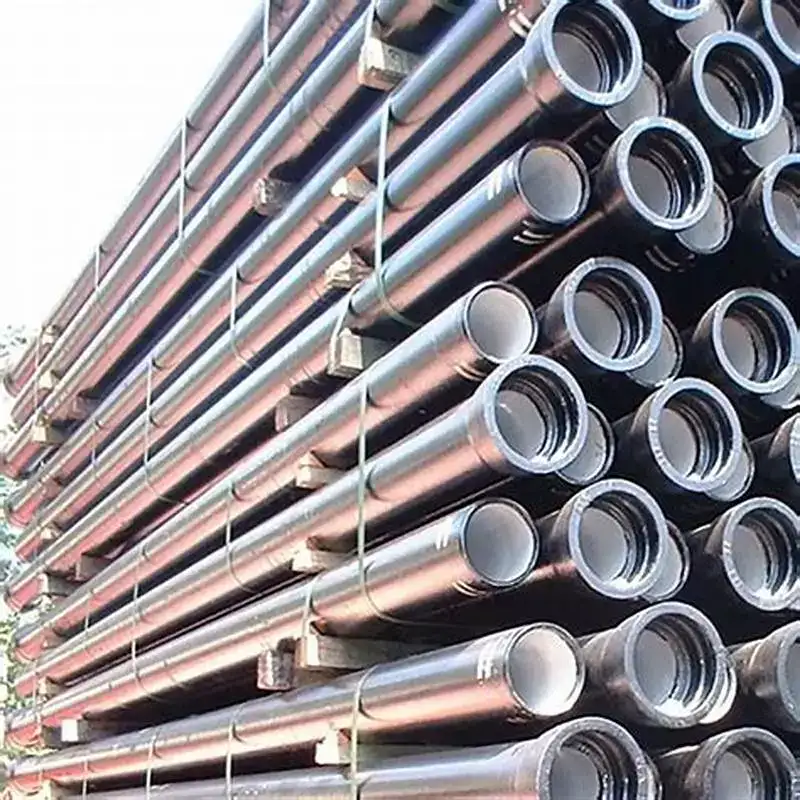Looking for 3-inch ductile iron pipe prices per linear foot? Current market rates range from 35 to 120 per foot, with variations based on AWWA pressure class (50/52/56), wall thickness, and protective coatings (cement mortar vs. polywrap).This guide provides an in-depth analysis of ductile iron pipe prices per foot, factors influencing costs, and comparisons with other materials.

1. Introduction to Ductile Iron Pipe (DIP)
Ductile iron pipe (DIP) is a cornerstone material for water distribution, wastewater systems, and industrial piping due to its high tensile strength, durability, and corrosion resistance. The 3-inch diameter variant is particularly popular for residential water service lines, fire protection systems, and small-scale industrial applications. This guide provides an in-depth analysis of 2024 pricing trends, technical specifications, and cost optimization strategies for 3-inch DIP.
2. Key Factors Influencing 3-Inch DIP Pricing
The price of 3-inch ductile iron pipe per linear foot is determined by multiple variables:
-
Material Costs: Fluctuations in iron ore, scrap metal, and magnesium prices.
-
Manufacturing Standards: Compliance with AWWA C150 (USA), ISO 2531 (EU), or GB/T 13295 (China).
-
Protective Coatings: Cement mortar lining (CML), polyethylene encasement, or epoxy linings.
-
Order Volume: Bulk discounts for purchases exceeding 500 linear feet.
3. Global Pricing Standards
| Region | Standard | Price Range (USD/ft) | Key Applications |
|---|---|---|---|
| North America | AWWA C150 Class 52 | 40–90 | Municipal water mains |
| Europe | ISO 2531 K9 | €35–€80 (38–88) | Industrial pipelines |
| Asia-Pacific | GB/T 13295 | ¥200–¥450 (28–63) | Residential water supply |
4. Pressure Classes and Wall Thickness
3-inch DIP is classified by pressure ratings under AWWA C150:
| Class | Wall Thickness (mm) | Max Pressure (psi) | Price Range (USD/ft) |
|---|---|---|---|
| 50 | 6.3 | 250 | 35–75 |
| 52 | 6.8 | 300 | 45–90 |
| 56 | 7.6 | 350 | 60–120 |
Applications:
-
Class 50: Low-pressure residential water lines.
-
Class 52: Municipal water distribution.
-
Class 56: High-pressure industrial systems.
5. Protective Coatings Cost Impact
| Coating Type | Cost Increase (USD/ft) | Lifespan Extension | Best Use Case |
|---|---|---|---|
| Cement Mortar Lining | +8–15 | 25–40 years | Potable water systems |
| Polyethylene Encasement | +12–20 | 50+ years | Corrosive soils |
| Fusion-Bonded Epoxy | +20–30 | 30–50 years | Chemical transport |
6. Regional Price Variations
-
North America: 40–40–120/ft (high labor and material costs).
-
Europe: €35–€90/ft (stricter environmental regulations increase production costs).
-
Asia: 28–28–70/ft (lower labor costs but variable quality standards).
7. Bulk Purchase Discounts
Suppliers typically offer tiered pricing:
| Order Quantity (ft) | Discount Rate | Effective Price (Class 52) |
|---|---|---|
| 100–500 | 5% | 42.75–85.50/ft |
| 500–1,000 | 10% | 40.50–81.00/ft |
| 1,000+ | 15% | 38.25–76.50/ft |
8. Comparative Analysis: DIP vs. Alternatives
| Material | Price (USD/ft) | Max Pressure (psi) | Lifespan (Years) | Maintenance Costs |
|---|---|---|---|---|
| 3-inch DIP | 40–40–120 | 350 | 100+ | Low |
| PVC (Schedule 80) | 15–15–40 | 200 | 50–75 | Moderate |
| HDPE | 20–20–50 | 160 | 50–100 | Low |
| Steel (Schedule 40) | 50–50–150 | 500 | 30–50 | High |
Key Takeaway: DIP balances cost, pressure capacity, and longevity better than most alternatives.
9. Installation and Lifetime Costs
-
Labor Costs: 20–20–50/ft (trenching, jointing, and testing).
-
Maintenance: Annual inspections (~$1,000/year for 1,000 ft systems).
-
Failure Risks: Poor coatings or improper installation can increase lifetime costs by 300%.
10. Case Studies
Municipal Water Upgrade (Austin, Texas)
-
Challenge: Replace leaking 3-inch steel pipes in a historic district.
-
Solution: Installed Class 52 DIP with polyethylene encasement.
-
Result: 30% cost savings over 20 years vs. steel.
Chemical Plant Retrofit (Germany)
-
Challenge: Transport acidic fluids at 300 psi.
-
Solution: Class 56 DIP with fusion-bonded epoxy lining.
-
Result: Zero leaks in 5 years, with ROI achieved in 3 years.
11. Frequently Asked Questions (FAQs)
Q1: Why are ductile iron pipes more expensive than PVC?
A1: Ductile iron pipes are made from a stronger material and often come with protective coatings, which increase manufacturing costs. Additionally, their durability and longer lifespan can justify the higher initial investment.
Q2: Can I use ductile iron pipes for residential water systems?
A2: Yes, ductile iron pipes are suitable for residential water systems, especially in areas with high water pressure or corrosive soil conditions.
Q3: How do I determine the right diameter and pressure class for my project?
A3: The required diameter and pressure class depend on factors like expected water flow, system pressure, and local regulations. Consulting with an engineer can help determine the appropriate specifications.
Q4: Are there any alternatives to ductile iron pipes?
A4: Alternatives include PVC, steel, and HDPE pipes. Each material has its advantages and disadvantages, and the choice depends on the specific requirements of the project.
Q5: How long do ductile iron pipes last?
A5: With proper maintenance, ductile iron pipes can last 50 to 100 years, making them a cost-effective choice in the long term.
Q6: Do prices vary based on geographic location?
A6: Yes, prices can vary based on factors like local manufacturing costs, transportation expenses, and regional demand. It’s essential to obtain quotes from local suppliers to get accurate pricing.
